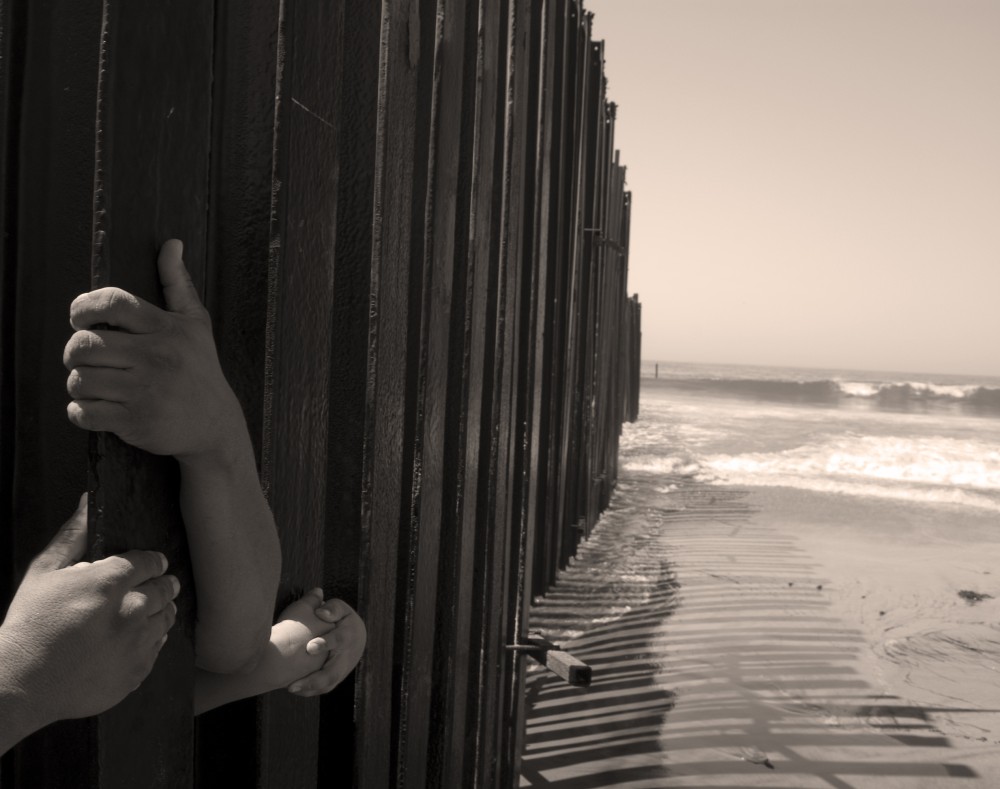A visit to the border with the New Sanctuary Coalition
In Tijuana, we witnessed the resilience and humanity of the migrant movement.

All the election-season fearmongering about the Central American caravan put the Tijuana-San Diego border on my year-end itinerary. On a trip organized by the New Sanctuary Coalition, seven of us had an opportunity to practice the presence of God—and to draw attention to the irreducible spark of divinity that exists within migrants seeking asylum.
More than 5,600 migrants had taken shelter in Tijuana's Benito Juarez Sports Complex (which has since our visit been closed). Processing was limited, purposefully, to 40–100 people a day. The outdoor stadium was heavily policed, with long lines awaiting limited rations of food and water. In the moderate heat of a November day, mothers nursed their infants and the elderly sought shelter under tenuous tents. Children used the curves and cracks in the street to guide their ball games—a sight similar to street games just miles away in San Diego or times zones away in Harlem.
Our group navigated the customs process after observing the American soldiers, the intimidating air power, and the barbed wire. The Trump administration spent more than $70 million to deploy nearly 6,000 active-duty troops to the southern border of the U.S.




